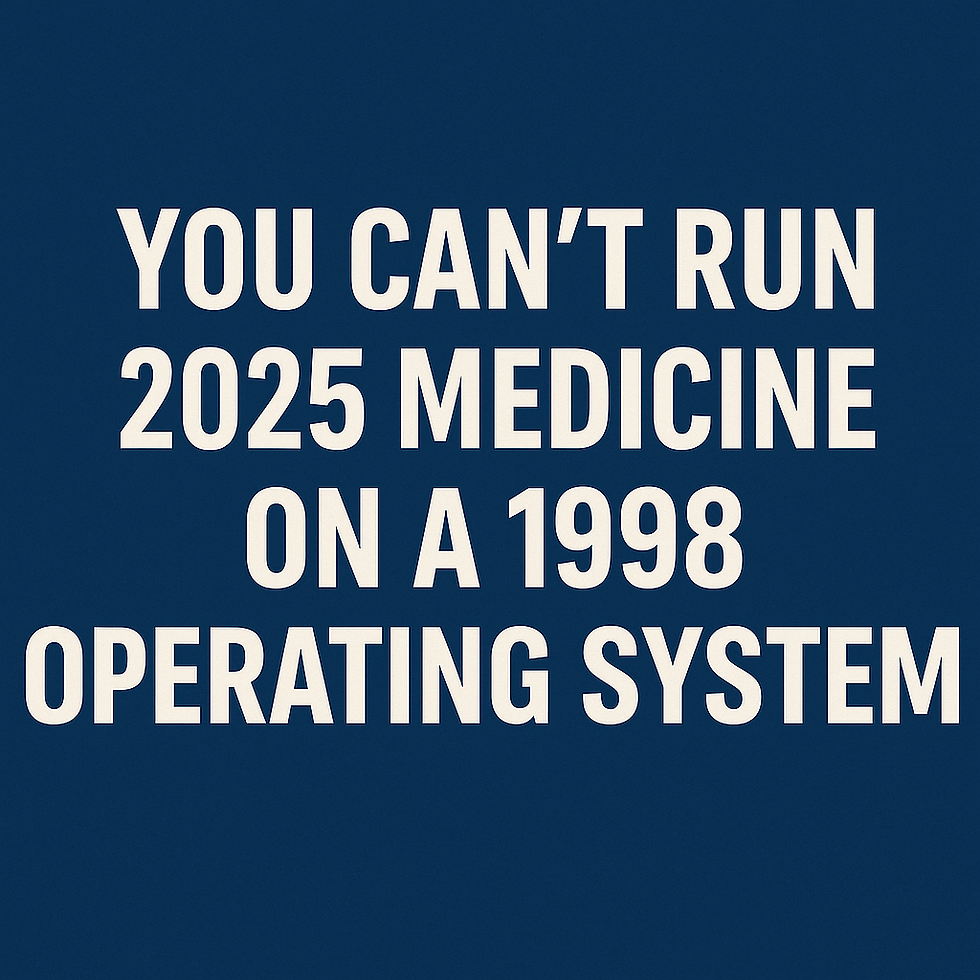Enhancing Operational Excellence in Healthcare Consulting
- Elevate Health Consulting

- Sep 13, 2025
- 5 min read
Updated: Sep 14, 2025
In the fast-paced world of healthcare, operational excellence is not just a goal, it is a necessity. As healthcare consultants, we are tasked with improving systems, processes, and outcomes for our clients. This blog post will explore how to enhance operational excellence in healthcare consulting. We will discuss practical strategies, real-world examples, and the importance of a patient-centered approach.
Operational excellence in healthcare means delivering high-quality care efficiently and effectively. It involves streamlining processes, reducing waste, and improving patient outcomes. In this post, we will break down the key components of operational excellence and how consultants can implement these strategies in their work.
Understanding Operational Excellence
Operational excellence is a philosophy that focuses on continuous improvement. It is about creating a culture where everyone in the organization is committed to enhancing processes and outcomes. In healthcare, this means ensuring that patients receive the best possible care while minimizing costs and maximizing efficiency.
Key Principles of Operational Excellence
Patient-Centered Care: The primary focus should always be on the patient. This means understanding their needs and preferences and designing processes that enhance their experience.
Data-Driven Decision Making: Use data to inform decisions. This includes analyzing patient outcomes, operational metrics, and financial performance.
Continuous Improvement: Encourage a culture of ongoing improvement. This can be achieved through regular training, feedback loops, and performance evaluations.
Collaboration and Communication: Foster teamwork and open communication among all staff members. This helps to break down silos and encourages a more integrated approach to care.
Lean Methodologies: Implement lean principles to eliminate waste and improve efficiency. This involves identifying non-value-added activities and streamlining processes.
The Role of Healthcare Consultants
Healthcare consultants play a crucial role in helping organizations achieve operational excellence. They bring expertise, fresh perspectives, and specialized knowledge to the table. Here are some ways consultants can enhance operational excellence:
Conducting Comprehensive Assessments
Before implementing any changes, it is essential to conduct a thorough assessment of the current state of operations. This includes evaluating processes, systems, and outcomes.
Example: A consultant might analyze patient flow in a hospital to identify bottlenecks. By mapping out the patient journey, they can pinpoint areas for improvement.
Developing Tailored Strategies
Once the assessment is complete, consultants can develop customized strategies that align with the organization’s goals. This may involve:
Streamlining processes to reduce wait times
Implementing new technologies to enhance patient care
Training staff on best practices for patient engagement
Implementing Change Management
Change can be challenging in any organization, especially in healthcare. Consultants must guide organizations through the change management process. This includes:
Communicating the benefits of change to all stakeholders
Providing training and support to staff
Monitoring progress and making adjustments as needed
Real-World Examples of Operational Excellence
To illustrate the impact of operational excellence, let’s look at a few real-world examples.
Case Study 1: Reducing Readmission Rates
A healthcare consulting firm worked with a hospital to reduce readmission rates for heart failure patients. They conducted a comprehensive assessment and found that many patients were not receiving adequate follow-up care.
The consultants developed a strategy that included:
Implementing a follow-up phone call program to check on patients after discharge
Providing education on medication management and lifestyle changes
Coordinating care with primary care physicians
As a result, the hospital saw a significant decrease in readmission rates, improving patient outcomes and reducing costs.
Case Study 2: Streamlining Surgical Processes
Another consulting firm partnered with a surgical center to improve efficiency in the operating room. They identified several areas where delays were occurring, including:
Inefficient scheduling practices
Lack of communication among surgical teams
Delays in equipment availability
The consultants implemented lean methodologies to streamline processes. They introduced a new scheduling system, improved communication protocols, and ensured that all necessary equipment was ready before surgeries.
The outcome was a 20% reduction in surgery times, allowing the center to increase its patient volume and improve overall satisfaction.
The Importance of Technology in Operational Excellence
Technology plays a vital role in enhancing operational excellence in healthcare. It can streamline processes, improve communication, and provide valuable data for decision-making. Here are some key technologies to consider:
Electronic Health Records (EHR)
EHR systems allow for better data management and sharing among healthcare providers. This leads to improved coordination of care and better patient outcomes.
Telemedicine
Telemedicine has become increasingly important, especially in the wake of the COVID-19 pandemic. It allows for remote consultations, reducing the need for in-person visits and improving access to care.
Data Analytics
Data analytics tools can help organizations track performance metrics and identify areas for improvement. By analyzing patient outcomes and operational data, healthcare providers can make informed decisions that enhance care quality.
Building a Culture of Excellence
Creating a culture of operational excellence requires commitment from all levels of the organization. Here are some strategies to foster this culture:
Leadership Commitment
Leadership must be fully committed to operational excellence. This means setting clear goals, providing resources, and leading by example.
Employee Engagement
Engaging employees in the process is crucial. This can be achieved through:
Regular training and development opportunities
Encouraging feedback and suggestions for improvement
Recognizing and rewarding contributions to operational excellence
Patient Involvement
Involving patients in the process can provide valuable insights. Organizations can gather feedback through surveys, focus groups, and patient advisory councils. This information can help shape processes and improve the patient experience.
Measuring Success
To determine the effectiveness of operational excellence initiatives, organizations must establish key performance indicators (KPIs). These may include:
Patient satisfaction scores
Readmission rates
Average wait times
Staff engagement levels
Regularly monitoring these metrics will help organizations assess their progress and make necessary adjustments.
Looking Ahead: The Future of Healthcare Consulting
As the healthcare landscape continues to evolve, so too will the role of healthcare consultants. The focus on operational excellence will remain critical, but new challenges will arise.
Consultants will need to stay ahead of trends, such as:
The increasing use of artificial intelligence in healthcare
The shift towards value-based care models
The growing importance of mental health services
By embracing these changes and continuing to prioritize operational excellence, healthcare consultants can help organizations thrive in an ever-changing environment.
Final Thoughts
Enhancing operational excellence in healthcare consulting is a journey, not a destination. It requires a commitment to continuous improvement, collaboration, and a patient-centered approach. By implementing the strategies discussed in this post, healthcare consultants can make a significant impact on the organizations they serve.
As we move forward, let us remember that operational excellence is not just about efficiency; it is about delivering the best possible care to patients. By focusing on this goal, we can create a healthier future for all.





Comments